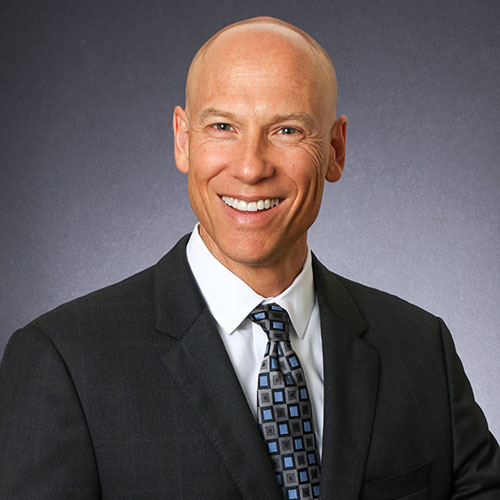Steps in Resolving a Florida Personal Injury Case
Not every claim has the same steps and every client’s claim is different. But most personal injury claims involve the same general steps.
Investigating the Claim
During the investigation phase, our office will be gathering records such as accident reports; incident reports; medical records; wage and employment records; and insurance documents that we think are necessary to pursue your claim. An investigator may take photographs or track down witnesses. We may interview witnesses and or hire expert witnesses. Depending on the case, this process can take quite some time.
When we are investigating a wrongful death case we use our experience to gather information in a way that minimizes the disruption to the family during their time of grief.
When we are investigating an injury case, it is important for the injured person to make the best use of this time by following up with treating physicians, following all healthcare providers’ advice, keeping all medical appointments, and following the treatment regimen recommended by doctors.

Getting Maximum Medical Improvement
Maximum medical improvement (MMI) is a term used in personal injury cases that do not involve a wrongful death. MMI occurs when the injured person’s medical condition has improved to the best it is ever going to be.
To reach MMI a person has to treat with their doctor long enough so the doctor can diagnose all of the injuries, determine whether the injuries are permanent, and if so, determine any future health care needs. Sometimes a person is at MMI very quickly. For example, this can occur in a couple of months after breaking bones. On the other hand, with a back injury it can take six months or more. With head injuries, a person may not reach MMI for a year or two.

Once the injured person reaches MMI, their treating physician will write a final report documenting the extent of the injury, the permanent nature of the injury, the type of future medical care needed, and the cost of future medical care. The treating physician’s final report is often a critical piece of evidence needed to prove the right to compensation.
Hiring Expert Witnesses
An expert witness is someone that has gained knowledge in a particular area through their education, training, and or on the job experience. In almost every personal injury case, expert witnesses are absolutely necessary to prove a claim. For example, in a medical malpractice case, Florida law requires you have an independent expert witness willing to swear under oath that a doctor, hospital or nurse was negligent and the negligence caused injury.
In a car accident case, Florida law requires you have an expert witness testify your injuries are permanent to receive compensation for pain and suffering damages. Although not required, in wrongful death cases, wage loss cases, and large medical damage cases, we often hire an economist to testify to the financial costs created by the wrongdoer’s negligence.
We recognize you cannot afford the cost of paying for these experts. Therefore, we advance all the costs of paying for them when they are necessary. If we obtain a recovery on your behalf we collect our costs from the recovery. If not then you do not have to pay us back.
Making a Claim for Compensation
If it makes sense to try and resolve your claim quickly, we will do so. However, in most cases the at fault party or their insurance company will not offer full value for a claim until we have gathered enough evidence to convince them the wrongdoer is responsible and we can prove the amount of damages. In a wrongful death case, this will occur after our investigation has been completed and any experts we hire have given us all their opinions.
In a medical malpractice case, this will occur when the experts we hire have completed their review of all the medical records and are willing to sign an affidavit swearing that the health care provider was negligent. In a personal injury case this will occur when the injured person reaches MMI and their physician prepares a final report. We cannot force the at-fault party or their insurance company to make a fair offer in your case. However, we will negotiate with them to obtain their highest offer. Although we will make recommendations regarding a fair settlement, ultimately, you make the decision regarding whether or not to settle.
Litigation (Filing a Lawsuit)
The process of filing a lawsuit, gathering evidence using formal court approved procedures, and moving toward a trial is called litigation. Most cases resolve without the need for litigation. However, if the at-fault party and/or their insurance company do not offer a settlement that is acceptable to you, a decision will be made regarding whether it makes sense to litigate your case.
Formal litigation begins by filing a document with the court called a complaint. We will file a complaint on your behalf if it makes sense to do so. Once the complaint is filed a judge will be randomly assigned by the court system to your case. We have no control over the judge assigned.
Sometimes the at-fault party or their insurance company hires a defense attorney immediately after becoming aware of your claim. Usually, however, they wait until after the complaint is filed. The defense attorney’s job is to use the litigation process to gather information, prepare the case for trial, recommend to the at-fault party or their insurance company whether or not to settle your claim, and try the case if it does not settle.
The Discovery Process During Litigation
Evidence for trial is gathered during litigation through a court approved process called discovery. The discovery process includes formal procedures for gathering information and investigating your claim. Each information gathering technique involves different rules that must be followed.
The first information gathering technique involves the use of interrogatory questions and Requests to Produce. Interrogatories are written questions sent to the other side in a lawsuit. Requests to Produce are formal requests for the other side to give you documents in their possession. The person receiving the Interrogatories or Request to Produce has 30 days to provide written responses.
We have created a set of interrogatory questions and Request to Produce for each type of personal injury case we handle that are designed to get as much information as possible.
Another information gathering technique involves taking depositions. A deposition is an in-person question and answer session that requires the person answering the questions to swear or affirm to tell the truth. The attorney asks all the questions and the witness must answer them. A court reporter takes down everything that is said. The court reporter then creates an official typed document that includes all the questions and answers. This document is called a deposition transcript.
Mediation
Mediation is a conference held to try to settle a personal injury claim. A mediator and not a judge handles the conference. The mediator listens to your injury lawyers from both sides talk about what they believe they can prove to a jury. The mediator has no power to decide the outcome of a case. Instead, after listening to the presentations, the mediator then encourages both parties to try and reach a settlement. If the mediation is successful the case settles. If it is not successful the case will move toward a trial.
Trial
Most cases settle without the need for a trial. However, if the at-fault party and or their insurance company does not offer enough to settle your claim, and it makes sense to do so, we will try your case. The trial process can be as short as one day or as long as several weeks. A trial involves presenting evidence to a neutral decision-maker. Sometimes the final decision-maker is the judge. However, most of the time the judge acts more like a referee by making decisions that ensure the trial process is fair. Usually, in personal injury lawsuits the ultimate decision maker is a jury.
A trial begins with jury selection. During jury selection, a question and answer session between the lawyers, potential jurors and the judge occurs. The judge decides the amount and type of questioning a lawyer can ask of a potential juror. The parties then try to eliminate the potential jurors they believe will not be fair. Ultimately, the parties, with the help of the judge, pick a jury of six people to decide the case.
After a jury is selected, both lawyers speak directly to the jury during opening statement, question witnesses in front of the jury, provide the jury with documentary evidence, and speak directly to the jury during closing argument. The jury then decides whether you are entitled to compensation and if so, how much.

As an ethical and trusted Tampa personal injury lawyer, Scott Distasio founded Distasio Law Firm in February of 2006, which focuses on all types of personal injury cases. He wanted to open a law firm that represented his belief that all firms should provide ethical and outstanding service to their clients.

